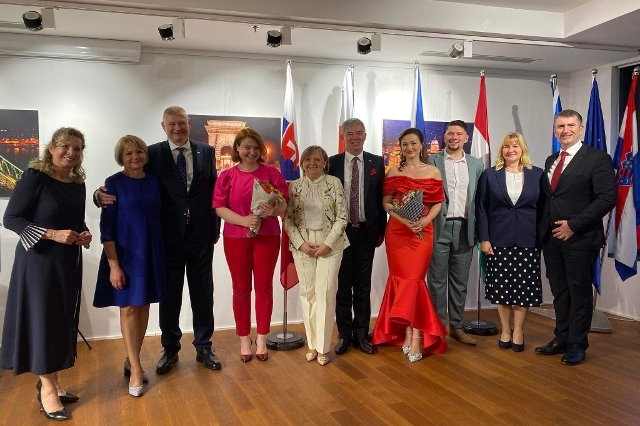Czech foreign minister: The West is losing to Putin
09.10.2012 / 12:36 | Aktualizováno: 09.10.2012 / 12:40
Rozhovor redaktora Joshe Rogina s ministrem Karlem Schwarzenbergem v americkém magazínu Foreign Policy z 25.9.2012 (v angličtině).
Russia President Vladimir Putin is well on his way to reestablishing Russia as a regional hegemon and the West has been too slow to recognize and deal with Putin's strategy, according to the foreign minister of the Czech Republic.
"We are not going back to Stalin, we are going back to Nicholas I," said Karel Schwarzenberg, the Czech minister of foreign affairs, in an exclusive interview with The Cable. "It was under Nicholas that the great part of Central Asia was conquered by the Russians and Putin is quite successfully getting them under the control of Russia again, and the West is losing."
The Obama administration's "reset" policy toward Russia was not enough to influence the path of the Russian government, a path that was set when Putin resumed power, Schwarzenberg said, and now the West must acknowledge and deal with the aggressive autocracy Putin has put in place.
"I have the impression we were a bit too late and too little. We were much too slow and much too little engaged during [former President Boris] Yeltsin's time," he said. "We can't accept this; we can't accept that any world power is dominating his neighbors. We shouldn't have illusions about the regime Putin has installed."
He said that Putin was now reacting to the increasing unrest inside Russia by turning inward and isolating Russia from the influence of Western society, for example by shutting down the U.S. Agency for International Development's mission in Moscow.
"By kicking [USAID] out, he indicated himself what he considers most dangerous for his autocracy," Schwarzenberg said. "He is now afraid to meet the people and that indicates that he realizes the opposition exists and that it has become a force in Russian society. Russia is changing much faster than he thought. It is not as easy to be a dictator as it was 40 years ago."
Schwarzenberg was in town to meet with Secretary of State Hillary Clinton on Sept. 21. He said they talked about Syria, where the Czech Republic is America's protecting power because the United States has withdrawn its diplomatic presence in Damascus. The Czechs protect the U.S. buildings and perform consular services for the roughly 3,000 Americans living in Syria.
The Czech Republic is among the only Western country that still has a diplomatic presence in Damascus. Schwarzenberg said that decision was made for practical, not political reasons.
"I think the purpose of the embassy is for the central government to get information and by withdrawing diplomats you lose the source of information," he said. "If it makes sense and as long as we are getting information, that's a good reason to stay. And the ambassador says she is not scared, so we stay there."
Schwarzenberg said the Czech Republic does not support a NATO-led effort to impose a no-fly zone in Syria and he doesn't think that Western countries should arm the rebels.
"I do think they get enough money and supply from the states backing them like Qatar, Saudi Arabia, and Turkey. They are better armed each day," he said. "It is a normal civil war which is more difficult because on the opposition side, there are many different groups, with different aims, financed by different countries."
The Czechs also want changes in an investment treaty with the United States that goes back decades, but the U.S. government is resisting those changes. Clinton also made the case that the U.S. company Westinghouse should be chosen to build the new nuclear power facility in the Czech Republic, rather than the other two bidders, Schwarzenberg said.
Schwarzenberg was the Czech official who signed the agreement with then Secretary of State Condoleezza Rice in 2008 to station an X-band missile-defense radar system in the Czech Republic, an agreement that the Obama administration abrogated when it altered U.S. plans for missile defense in Europe.
The Czech defense minister at the time, Alexandr Vondra, famously said that this decision was indicative of the Obama administration's "enemy-centric" policy. Schwarzenberg said he understood the decision and the Obama administration's perceived turn away from Europe towards other regions including Asia.
"I'm a realist and maybe I was not so full of admiration of the United States as [Vondra], who lived inside the Soviet bloc. I consider myself a great friend of the United States but I know that great powers have their own interests and act in accord with them," Swarzenberg said.
"The Pacific basin is now more important than Europe, it's perfectly understandable," he said. "I think in Europe we have to learn that we have to care much more ourselves, for our own security."






